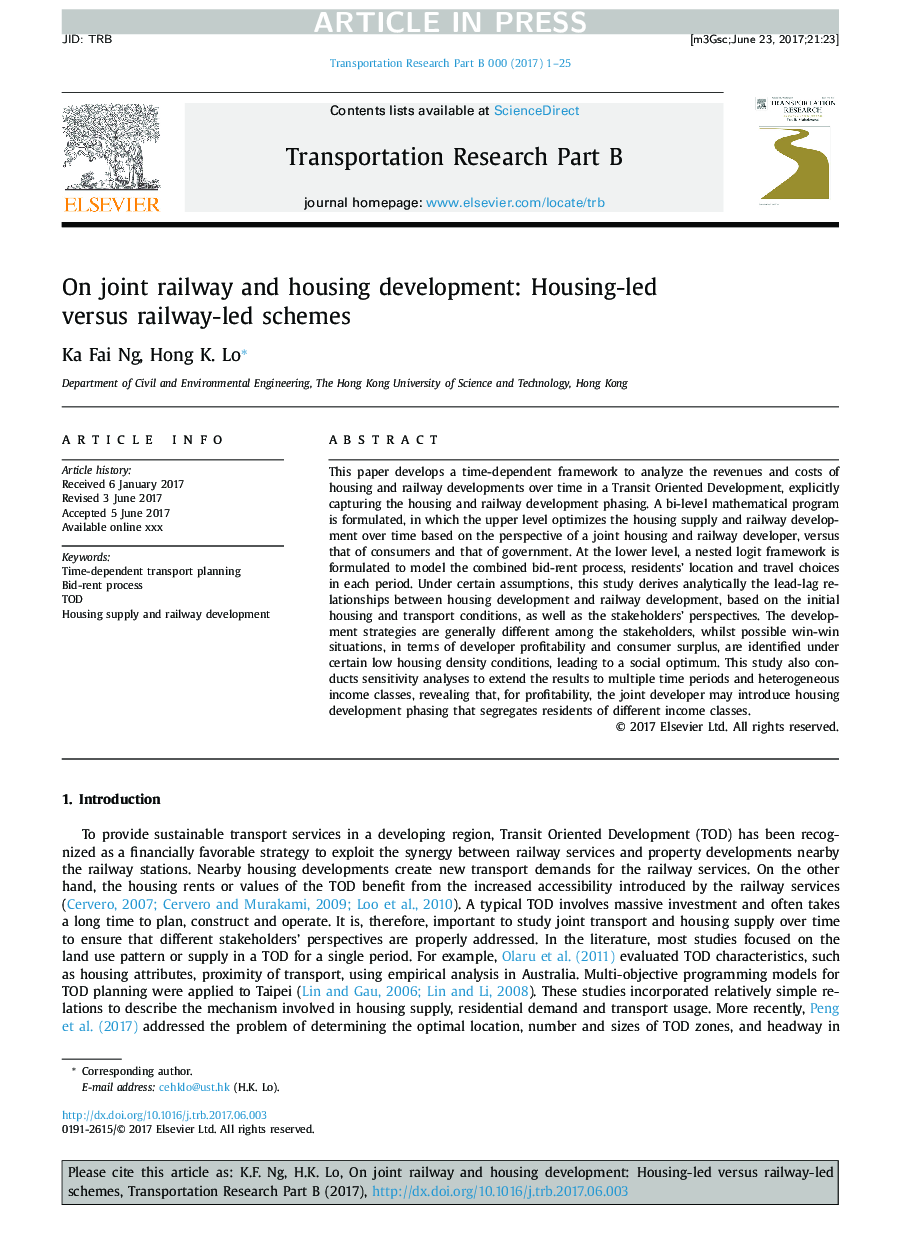| Article ID | Journal | Published Year | Pages | File Type |
|---|---|---|---|---|
| 7539397 | Transportation Research Part B: Methodological | 2017 | 25 Pages |
Abstract
This paper develops a time-dependent framework to analyze the revenues and costs of housing and railway developments over time in a Transit Oriented Development, explicitly capturing the housing and railway development phasing. A bi-level mathematical program is formulated, in which the upper level optimizes the housing supply and railway development over time based on the perspective of a joint housing and railway developer, versus that of consumers and that of government. At the lower level, a nested logit framework is formulated to model the combined bid-rent process, residents' location and travel choices in each period. Under certain assumptions, this study derives analytically the lead-lag relationships between housing development and railway development, based on the initial housing and transport conditions, as well as the stakeholders' perspectives. The development strategies are generally different among the stakeholders, whilst possible win-win situations, in terms of developer profitability and consumer surplus, are identified under certain low housing density conditions, leading to a social optimum. This study also conducts sensitivity analyses to extend the results to multiple time periods and heterogeneous income classes, revealing that, for profitability, the joint developer may introduce housing development phasing that segregates residents of different income classes.
Keywords
Related Topics
Social Sciences and Humanities
Decision Sciences
Management Science and Operations Research
Authors
Ka Fai Ng, Hong K. Lo,
